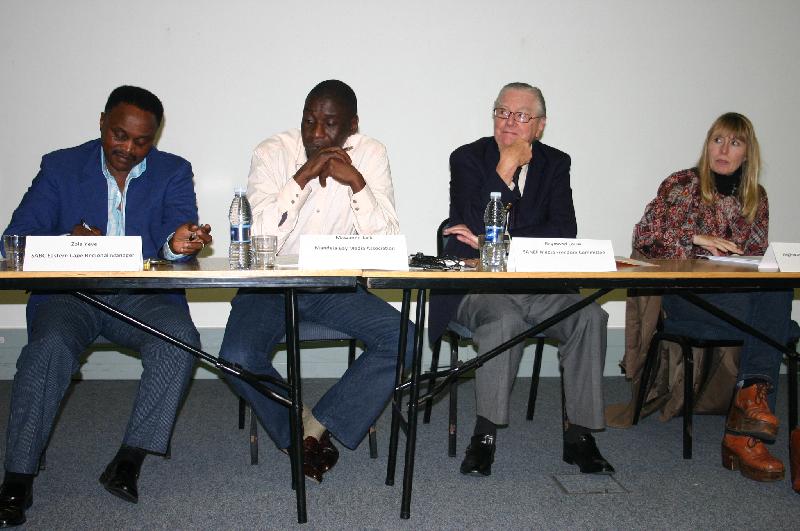
The SABC would be tied closely to the apron-strings of the ANC government, the Independent Communications Authority of South Africa (ICASA) would be undermined and the Minister given unprecedented powers to determine the quality, quantity and content of local programming, if the new public service broadcasting bill goes through as it stands argued a panellist at the Rhodes World Press Freedom Day seminar.
Mr Mawande Jack of the Mandela Bay Media Association, who felt that the bill was a hasty undertaking by the Communications Minister Siphiwe Nyanda, said that this move would change the SABC from being a public broadcaster to being a state broadcaster and that has serious consequences for broadcasting in South Africa.
Mr Raymond Louw of the Media Freedom Committee shared Jack's sentiments and felt that there was a lack of consultation. He said the implication of the bill was that the Minister will be the one appointing the board giving him indirect influence.
“The Minister wants to have totally unacceptable powers in a democratic state like South Africa,” said Louw.
Mr Jack and Mr Louw were part of a panel discussion commemorating the World Press Freedom Day organised by the School of Journalism and Media Studies on May 3 at Rhodes University.
May 3 was declared World Press Freedom Day to raise awareness of the importance of freedom of the press and to remind governments of their duty to uphold and respect the right to freedom of expression.
The panel discussion focused on the new Public Services Broadcasting Bill which seeks to align the broadcasting system to the developmental goals of South Africa for the benefit of the citizens. It also notes that South Africa is a developmental state with enormous challenges relating to unemployment and rural development and that public service broadcasting is not the sole responsibility of the SABC.
The new bill gives the Minister ultimate responsibility in implementing this new act as well as the option to establish an advisory board that will assist him with this.
Zola Yeye, SABC Eastern Cape Regional Manager challenged the fact that the bill was not sent around for consultation. “I made my own submissions when the bill came around the Eastern Cape,” he said. “We live in an era of new media, some debates have taken place on Twitter, Facebook and even the youth had an opportunity to make submissions via the internet,” he added.
Professor Jane Duncan, Highway Africa Chair of the Media and Information Society agreed that the bill had been sent around the country for consultation. However, she said that this was inadequate as the department only allowed for three months of consultation and by the time this bill is passed, the whole process will have taken a year.
She added that the bill's implication will be to heighten the SABC's editorial timidity and establish the Minister as a super power.
Mr Yeye said that people must not fear that the bill will mean that the SABC will be used as a platform for spreading propaganda. The SABC will continue to serve as a platform where ordinary citizens can express their stories.
He cited the BBC as an example of how this bill will not interfere with the SABC's independence from the government. The BBC is 100% funded by the government, but it remains independent. The government has no influence over editorial content. “People tend to focus on the powers of the Minister and forget that there are fire walls put in place to guard against any imposition by any individual or political entity on the broadcaster,” Mr Yeye said.
